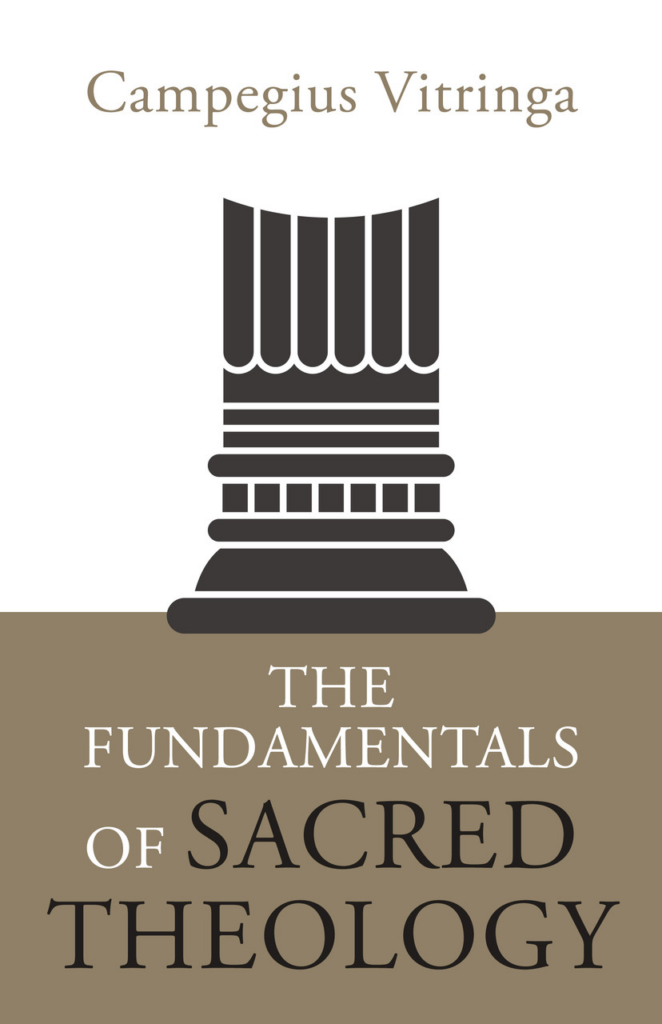A scene from The Canterbury Psalter (12th century)
Blog
Cartesian Tweaking of Trinitarianism

In his intro to the new translation of Campegius Vitringa’s Fundamentals of Sacred Theology, Levi Berntson describes how Vitringa, in numerous other works, defended the traditional (Nicene) doctrine of the Trinity, and in particular the eternal generation of the Son. Vitringa had written his 1679 dissertation about the exegetical basis of the doctrine of eternal generation, so when the doctrine came under critique about a decade later, Vitringa was well prepared to engage the arguments.
What was the critique, and what were the arguments? Here’s Berntson’s summary:
When controversy arose at Franeker during the late 1680s, Vitringa found himself as the lead defender of orthodox Trinitarian theology in Friesland. At this point in his teaching career, he entered into a series of debates with Röell, who was professor of theology and philosophy at Franeker from 1685 to 1704. Based on a strongly Cartesian doctrine of reason and its application to theology, Röell argued that the second person of the Trinity was true and eternal God, but he was critical of the eternal generation of the Son. For Röell, the innate idea of God as the most perfect being (ens perfectissimum) functions as the foundation for his doctrines of God and the Trinity. According to this innate idea of God, whatever is divine must be utterly independent since God does not depend on anything else. So, if one divine person is dependent on another divine person for His deity, then this contradicts the independence of God. For this reason, if someone claims that the Son is dependent upon the Father in any way, then this contradicts the clear and distinct notion of God as independent. On this basis, Röell // argued that there are no eternal processions which distinguish the divine persons, and therefore he also denied that there is any natural order of the three persons in the Godhead. According to him, if one is to speak of the generation of the Son at all, then it only refers to the Son being manifested in the flesh. (Berntson, Fundamentals, “Introduction,” xxviii-xxix)
I have often wondered why the classical Nicene doctrine of eternal generation began to seem implausible to early moderns. I don’t think it’s adequate to think of Röell as the holder of the smoking gun, because I just don’t think it’s likely that he exerted enough causative power to bring about such a widespread shift of sentiments. I’m not even inclined to say, “Aha! Cartesianism!” partly because I’ve seen too many potted intellectual histories lazily blame everything from smallpox to inflation on Descartes. On the other hand, Cartesian rationalism in theology was a big enough problem to prompt van Mastricht’s epically titled Gangrene of the Cartesian Innovations (1677).
But something rings true in the proposition that belief in eternal generation was undermined by a new form of rationalist natural theology, the kind that defined “God” from clear and distinct ideas, present to the mind by their own power. If a thinker with a geometric spirit (as Pascal said of Descartes) took divine independence as axiomatic, extrapolated from it some restrictive definitions of personal distinction, and rejected any relation to principle (or source or origin), but then still tried to believe in the Trinity, you’d get something like this: a new doctrine of the Trinity that superficially resembled the old one, but that had threeness without internal relation.
There is a good discussion of Röell in Brannon Ellis’ 2012 book on the aseity of the Son, pages 127-136. Ellis does a great job of showing how Röell considered his own project to be a necessary defense against subordinationism. Scott Swain (largely drawing on Ellis) detects Röell’s influence in some of the dubious trinitarian judgments of B.B. Warfield.
About This Blog

Fred Sanders is a theologian who tried to specialize in the doctrine of the Trinity, but found that everything in Christian life and thought is connected to the triune God.


